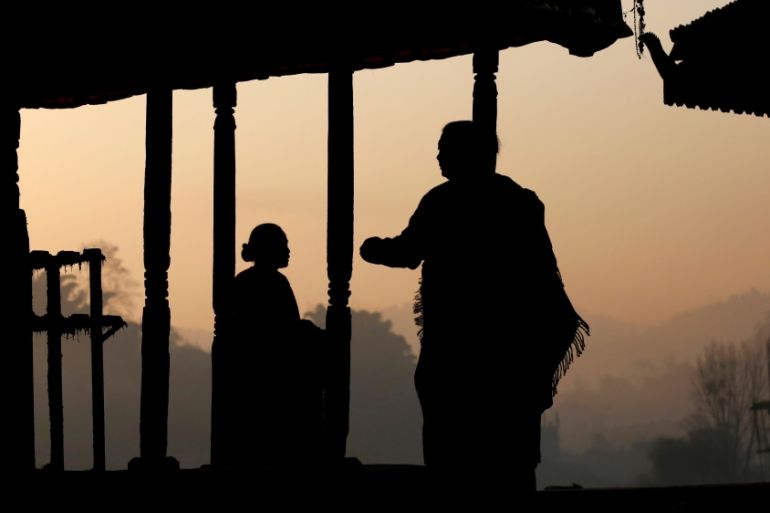Nepal offers cash reward to women who refuse ‘menstrual huts’
Death of a 21-year-old woman has prompted village official to reward those who reject outlawed practice.

A Nepali village will give cash rewards to women who refuse to be isolated in illegal so-called “menstrual huts” during their periods, an official said on Tuesday after the custom led to another death.
Parbati Buda Rawat, 21, was on the third day of her period on Sunday when she lit a fire to keep warm in the freezing mud-and-stone hut, but was discovered dead the next morning in western Nepal’s Achham district, police said.
Keep reading
list of 3 itemsWhy Nepal’s ‘menstruation huts’ are still killing women
Nepalese woman dies following banishment to ‘menstruation hut’
“It appears she died after suffocating,” Narapati Bhatta, a police inspector, told the Thomson Reuters Foundation.
Outrage led to a parliamentary investigation into the centuries-old Hindu practise of “chhaupadi”, outlawed in 2005 after a teenage girl and a mother and her young sons died in two similar incidents earlier this year.
The custom remains prevalent in Nepal’s remote west where some communities fear misfortune, such as a natural disaster, unless menstruating women and girls – seen as impure – are sent away to animal sheds or huts.
They are also not allowed to meet other family members or venture out, must eat frugally, and are barred from touching a range of items – including milk, religious idols and cattle.
‘Tear down the huts’
The chairman of Purbichowki village municipality in Doti district – on the western border of Achham district where the latest victim died – said he will reward women who reject chhaupadi with 5,000 Nepali rupees ($44).
“We need to tear down the huts in our minds, change attitudes and accept menstruation as a natural process in the life of a woman,” said Dirgha Raj Bogati, adding that demolishing the huts had proven ineffective.
“If we dismantle one hut, they move away and build another one,” he said.
The new reward – a one-off payment to deter families from using the huts – will benefit 100 women this year, he said, in one of the world’s poorest nations, where World Bank data shows 41 percent of a 28 million population live on less than $3.20 a day.
Bogati repeated warnings by local officials that families would be denied state benefits if found practising chhaupadi.
The government introduced three-month jail terms and fines of 3,000 rupees for those who exclude menstruating women and girls, which puts them at risk of snake bites, attacks by wild animals and rape, and in this case, carbon dioxide poisoning.
Campaigners say few are punished as victims rarely file complaints against their own family members. Om Prakash Aryal, a human rights lawyer, urged police to prepare their own reports and file cases in courts if victims feared coming forward.
“It is shame that such an inhuman practice still prevails in Nepal. It is a blot on our civilisation,” he said.